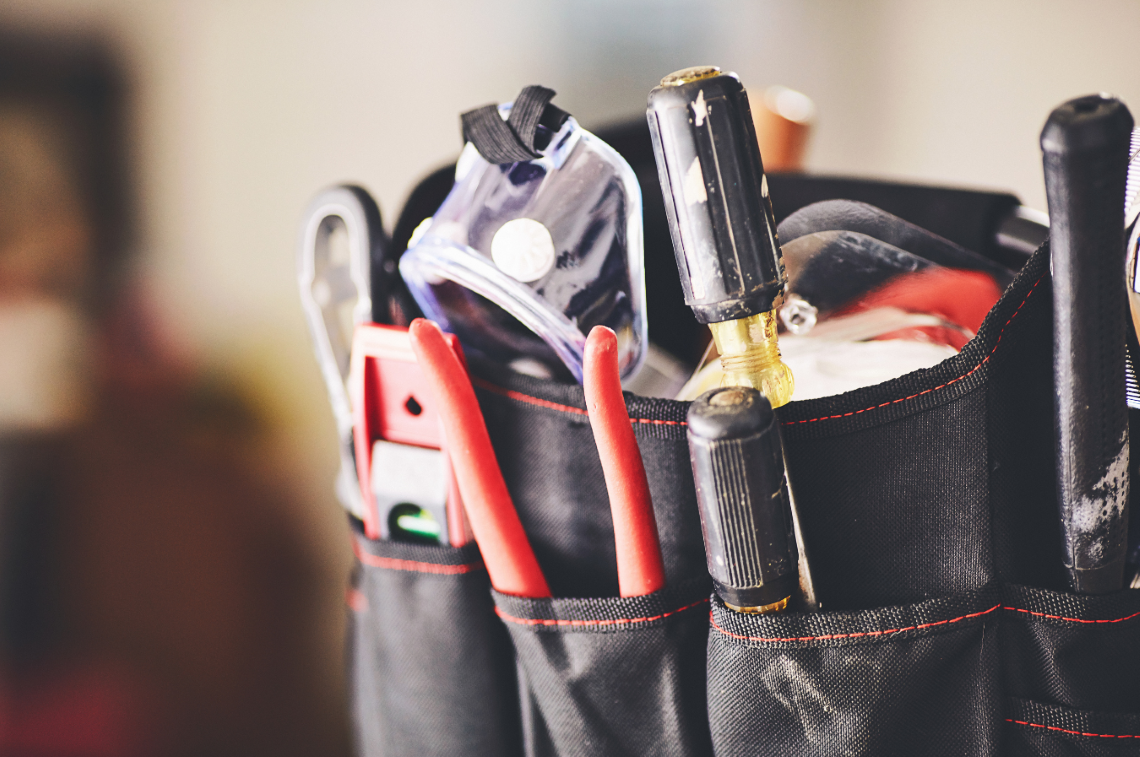For tradespeople, the toolkit is not just a collection of tools; it’s an essential part of their livelihood. The loss or damage of these tools can not only disrupt daily operations but also pose a financial burden. This is where tool insurance, often referred to as tradie tool insurance or trade tool insurance, becomes crucial. In this comprehensive guide, we’ll take a deep dive into tool insurance policies, exploring the nuances and benefits of safeguarding your tools of the trade.
Understanding Tradie Tool Insurance:
Defining the Basics
Tradie tool insurance is a specialised form of coverage designed to protect the tools and equipment that tradespeople rely on for their daily work. This type of insurance goes beyond general liability coverage, focusing specifically on the tools of the trade that are essential for carrying out job responsibilities.
Tool Insurance vs. General Insurance:
While general liability insurance provides coverage for third-party injuries or property damage, tradie tool insurance hones in on protecting the tools and equipment owned by the tradesperson. This ensures that in case of loss, theft, or damage to tools, the financial impact is mitigated, and the tradesperson can quickly resume work.
Categories of Tools Covered:
Tradie tool insurance typically covers a wide range of tools, from hand tools and power tools to specialised equipment. Commonly covered tools include wrenches, drills, saws, and other instruments specific to a trade. The scope of coverage can vary, so it’s essential to review policy details to understand which tools are included.
 Exploring Key Components of Tool Insurance Policies:
Exploring Key Components of Tool Insurance Policies:
Coverage Features and Options
- Theft Coverage:
One of the primary concerns for tradespeople is the theft of their tools. Tradie tool insurance addresses this by providing coverage for the replacement cost of tools in case they are stolen. This includes both theft from the job site and theft from a secured vehicle.
- Accidental Damage:
Accidents are an inherent risk in any trade. Tool insurance policies often include coverage for accidental damage, ensuring that if a tool is dropped, damaged, or malfunctions during regular use, the cost of repair or replacement is covered.
- Coverage Limits:
Policies may have coverage limits, which represent the maximum amount the insurance company will pay for a covered loss. It’s crucial to understand these limits and assess whether they align with the value of your tools. Some policies may allow for increased coverage limits based on the tradesperson’s needs.
- In-Transit Coverage:
For tradespeople constantly on the move, in-transit coverage is vital. This feature extends protection to tools while they are being transported from one job site to another. Whether in a personal vehicle or a dedicated work vehicle, the tools remain covered during transit.
- Coverage for Temporary Locations:
In the construction and trade industries, work locations change frequently. Some tool insurance policies provide coverage for tools at temporary job sites, ensuring that tools remain protected even when the tradesperson is working away from their primary location.
- Optional Add-Ons:
Depending on individual needs, tradie tool insurance policies may offer optional add-ons or endorsements. These could include coverage for hired or borrowed tools, business interruption coverage, or even coverage for tools stored at a designated storage facility.
Evaluating the Benefits of Tool Insurance:
Why It Matters for Tradespeople
- Financial Security:
Tool insurance provides financial security by covering the cost of tool replacement or repair. For tradespeople who have invested significant sums in their tools, this protection is invaluable in ensuring the continuity of their work.
- Quick Recovery:
In the event of a covered loss, tool insurance facilitates a quick recovery. Whether tools are stolen, damaged, or lost, the insurance payout allows tradespeople to replace the tools promptly, minimising downtime and business disruption.
- Job Site Confidence:
Knowing that tools are covered provides tradespeople with added confidence when working on job sites. It allows them to focus on their tasks without the constant worry of potential financial setbacks due to tool-related incidents.
- Professionalism and Reliability:
Having tool insurance demonstrates professionalism and reliability to clients and employers. It signals that the tradesperson is proactive about protecting their tools and is prepared to handle unforeseen circumstances without affecting project timelines.
 Tips for Choosing the Right Tool Insurance Policy:
Tips for Choosing the Right Tool Insurance Policy:
Navigating the Decision-Making Process
- Assess the Value of Your Tools:
Before selecting a policy, assess the value of your tools. This includes both replacement cost and the importance of each tool to your trade. A thorough evaluation will help determine the appropriate coverage limits.
- Review Coverage Details:
Carefully review the coverage details of each policy. Ensure that it covers the types of tools you own, offers protection against theft and accidental damage, and aligns with your specific needs.
- Consider Your Work Environment:
Consider the nature of your work and the environments in which you operate. If your job frequently involves travel, in-transit coverage and coverage for temporary job sites become critical factors to consider.
- Explore Optional Add-Ons:
If available, explore optional add-ons or endorsements that can enhance your coverage. These may provide additional protection for specific scenarios that align with your work practices.
- Compare Premiums and Deductibles:
Compare the premiums and deductibles associated with different policies. While a lower premium may seem attractive, it’s essential to evaluate the overall value by considering coverage limits and deductibles.
- Read Customer Reviews:
Gain insights into the experiences of other tradespeople by reading customer reviews of insurance providers. Look for feedback on claims processes, customer service, and overall satisfaction.
Get in Touch Today
Tradie tool insurance, or tool insurance for tradespeople, is an indispensable component of risk management in the trade industry. It offers a layer of protection that goes beyond general liability coverage, addressing the specific needs of tradespeople whose livelihoods depend on their tools. By understanding the key components, benefits, and decision-making factors associated with tool insurance policies, tradespeople can make informed choices to safeguard their tools of the trade. In the dynamic world of trades, where each tool is an investment, tool insurance provides the assurance and security needed to focus on what matters most – delivering quality work with confidence.
Contact us today to find out more about tool insurance for tradies.
Note: The material offered here is for informational purposes only. It does not constitute legally binding advice and should not be a substitute for a consultation with an insurance expert.

 Tips for Choosing the Right Tool Insurance Policy:
Tips for Choosing the Right Tool Insurance Policy: